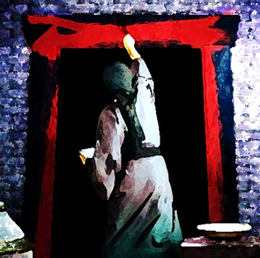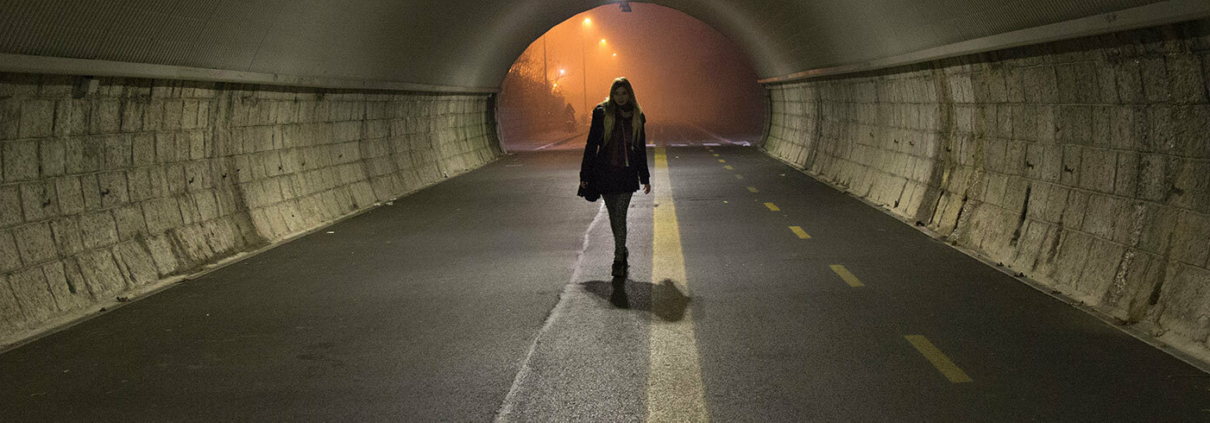Culture of Victimhood
We are suffering a culture of victimhood. Whether on a personal or communal level, the common ethic is to assume the moniker of victim. It begins with the claim that an injustice has been done and that the injustice must be acknowledged. The victims claims moral superiority over those who have harmed him. Thereafter, the victim demands that lines be drawn, and sides taken. The oppression narrative motivates the victim in unhealthy ways.
Jews have a keen understanding of victimhood. If any people should understand being victimized, it is us. Despite victimization, the endurance of the Jewish people is attributable to personal growth and communal ties. Our tradition urges us not to withdraw into our victim status but to emerge into the freedom of a better future.

In Parshat Bo, Moses instructs the people to place blood on their doorposts so that the angel of death will pass over their homes. In the morning, the Jews emerge through these bloody portals with their first steps toward freedom. I imagine that the symbolism of the lamb’s blood is as much a reminder of the blood shed as slaves as a protection from harm. It is precisely with recognition of their own bloody history that the Jewish people liberate themselves. We start the Seder telling the story of our oppression, but we end with songs of praise and hope. We don’t remain trapped in the mindset of victimhood.
“Truth is, we currently live in a culture where many political and cultural groups and individuals emphasize their victimhood identity and compete in the “Victimhood Olympics.” Charles Sykes, author of A Nation of Victims: The Decay of the American character, noted that this stems in part from the entitlement of groups and individuals for happiness and fulfillment. Building on Sykes’ work, Rahav Gabay and her colleagues note: “When these feelings of entitlement are combined with a high individual-level tendency for interpersonal victimhood, social change struggles are more likely to take an aggressive, disparaging, and condescending form.” Therefore, devotion to one’s victim status impedes our ability to compromise and sympathize with others, also created in the image of God.
The American social and political landscape is overrun by the culture of victimhood. It infects all areas of discourse and governance. This critique does not negate that the oppression has occurred. As noted in Torah, our first step to freedom is [to emerge] from between the bloody posts of the past.
The exit from Egypt is not a perfect journey – neither geographically nor spiritually. Forty years of wandering was a corrective measure to nurture a generation who would dismiss victimhood and embrace self-actualization. Similarly, America’s path through this period of violent victimhood will not end quickly. A generation may have to pass to release attachments to victimhood as motive and moral superiority as message.
We can start to unravel this culture of victimhood in our own communities. The repair of our society begins the process – in our interactions with family, with friends, within our synagogues and schools, and within our local politics. And the process begins with questions rather than statements. Our interest in how others are feeling is an opening to mutual respect. Our curiosity breaches the walls erected between us. Our willingness to set aside our own attachment to victimhood sets an example for everyone around us.
As for the political culture of this decade, notice your own inclination to dismiss the expression of persons with whom you disagree. Are you listening deeply or wrapping yourself in a cloak of moral superiority? We can all agree that violence and hatred are unjustifiable. But if we don’t acknowledge the sense of victimhood, even by those who harm others, we are losing the opportunity to quell the violence with constructive solutions. As Jews we can demonstrate that victimhood does not serve us as well as personal growth precisely because we have endured, empathized and transcended.
Rabbi Evan J. Krame






 Evan J. Krame was ordained as a rabbi by the
Evan J. Krame was ordained as a rabbi by the